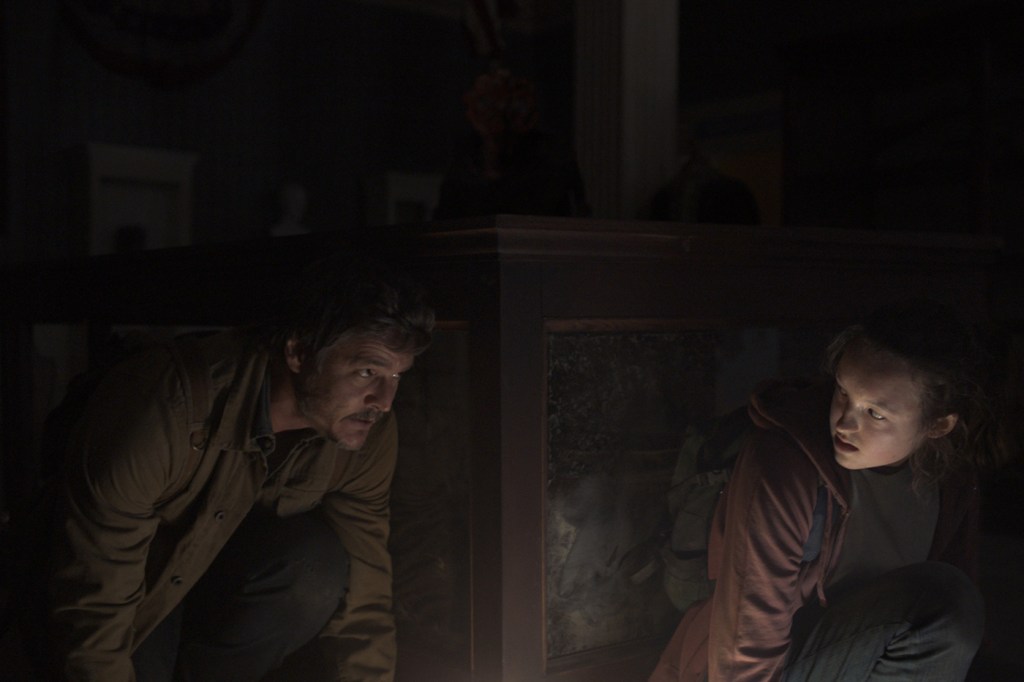Post-apocalyptic ‘The Last of Us’ could be HBO’s next hit show. But why do we love stories about the end of the world?

Cities hollowed out by a deadly infection. Once-crowded streets that are now quiet avenues bereft of human activity, lined by rows of empty cars. Vines and vegetation creep up the sides of buildings and homes.
This is the world of “The Last of Us,” HBO’s adaptation of the acclaimed post-apocalyptic video game and potentially it’s next hit show, but it might sound familiar. There are the obvious echoes of the real-world COVID-19 pandemic. Although the game came out in 2013, the show’s arrival on Jan. 15, 2023, carries unavoidable psychological baggage.
But the world of “The Last of Us” is also likely familiar because of how popular and omnipresent the apocalyptic/post-apocalyptic genre is. With talk of World War III still hovering in the air, generalized apocalyptic anxiety is here in 2023. But the end times have been a fixture of fiction for centuries, from before the Book of Revelations to “War of the Worlds.” It begs the question: Why do we love stories about the end of the world?
“They appeal to us on the level of hope as well as despair,” says Dale Bailey, Shirley Jackson Award-nominated science fiction, horror and fantasy writer.
Bailey has been thinking about the end of the world for decades. When the author of “The End of the End of Everything” started reading sci-fi around 10 years old, he found himself drawn to stories about the end of the world from the 1950s and 1960s, all of which were charged with Cold War anxieties about nuclear armageddon.
Despite the subject matter, he says he found an odd sense of comfort in those stories. Bailey breaks down apocalyptic stories into two categories: the comforting kind––what science fiction writer Brian Aldiss calls “cozy catastrophe”–and the “pessimistic, terrified perspective of what comes next” in the vein of Cormac McCarthy’s “The Road.”
“There were these two paths, and I found myself deeply attracted to ‘everything is going to be ok,’ which is ridiculous because obviously everything is not going to be ok,” Bailey says. “I was a high anxiety kid. That was a way to channel some of the anxiety.”
Bailey is not alone. Apocalyptic stories are often a reflection of “our core values” and shared cultural anxieties, says Sheila Winborne, an associate teaching professor of religion at Northeastern University. The source of the anxiety changes–from Cold War era fears about nuclear war to anxieties around technology that peaked at the turn of the 21st century with Y2K–but apocalyptic stories are always there to capture and reflect those fears.
“Watching films of the horror genre is a way for us to see many of our worst fears represented,” Winborne says. “Horror films symbolize what we know, which is that our world is not always a safe place. Apocalyptic films also do this.”
“[It’s] that idea of purging, at least temporarily, those things that are bothering us,” Bailey says.
The earliest earth-shattering stories served a slightly different purpose. They were often religious and didactic, meant to impart a specific lesson. Winborne says the New Testament’s Book of Revelations is, in part, meant to tell early Christians that despite the oppression they were experiencing because of their religious beliefs, they would be rewarded in the end if they stayed true to the teachings and morals of their faith.
The religious apocalypse has since given way to the kind of popular end times scenarios cooked up by sci-fi and fantasy writers, but real-world anxieties still ground these stories in whatever moment they appear.
They’re also effective ways of examining essential human traits in dramatic ways. A convention of the genre is how without the luxuries of modern life, “the veneer is stripped away and what we are becomes the dominant characteristic,” Bailey says.
“Apocalyptic events, including a global pandemic like COVID, can bring out the best in some people and it can bring out the worst in others,” Winborne says. “Apocalyptic films highlight some of the best and some of the worst truths about what it means to be human.”
There’s a kind of compelling cynicism at work in the genre, not only in the idea that humanity has a heart of darkness but in the idea that the planet might be better off without us. Just look at the way pollution and emissions decreased during the pandemic.
In apocalyptic stories, hope and horror are two sides of the same coin. The balance between the two keeps us engaged and entertained as we watch the world burn. Hope has been implicit in the idea of the apocalypse going back to the story of Noah and the Biblical flood. What could humanity do if given a fresh start?
“Apocalypticism is equally about tragic destruction and hope for the future: the ending of one period and the beginning of another,” Winborne says. “The question is: how ethical and moral will we be in creating the new period and will we do better than many of our most powerful ancestors and perhaps we ourselves have done during recent periods?”
But apocalyptic tales like “The Last of Us” and Bailey’s short story “The End of the World as We Know It” also find empathy and hope by using widespread devastation as a way to examine loss and grief on a personal level. In Bailey’s short story, a man wakes up to find his wife and daughter dead–along with the rest of the world.
The spectacle of seeing cataclysmic destruction in films like “2012” will always be viscerally appealing, Bailey says, but audiences come back because the feeling that the world is ending is universal.
“The end of the world happens every day,” Bailey says. “It’s just not happening to you, but it will. Maybe you’ll lose someone close to you, and that’s crushing. But the question is how do you go on? It’s the end of the world writ small.”
For media inquiries, please contact media@northeastern.edu.






